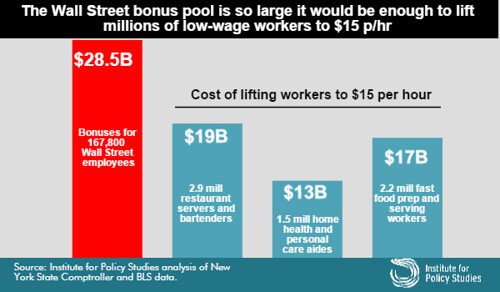In recent years, wealth inequality has become a pressing issue in societies around the world. The gap between the rich and the poor has widened significantly, creating economic disparities and social unrest. In this article, we will delve into the topic of wealth inequality from a personal finance perspective, exploring its causes, consequences, and potential solutions. By understanding the intricacies of wealth inequality, individuals can make informed decisions to improve their financial well-being.
The Causes of Wealth Inequality
Wealth inequality can be attributed to various factors that contribute to the concentration of wealth in the hands of a few. Here are some key causes:
- Income Disparities: One of the primary drivers of wealth inequality is the unequal distribution of income. High-income earners have more disposable income to save and invest, enabling them to accumulate wealth at a faster pace than those with lower incomes.
- Inheritance and Family Wealth: Inherited wealth can significantly contribute to wealth inequality. Individuals born into affluent families have access to resources, networks, and opportunities that facilitate wealth accumulation across generations.
- Financial Education: Limited financial literacy and education can perpetuate wealth inequality. Those with a solid understanding of personal finance, investments, and wealth management are better positioned to make informed decisions and grow their wealth.
- Systemic Barriers: Discrimination, unequal access to quality education, and systemic biases can hinder wealth creation for marginalized communities. Overcoming these barriers is crucial in addressing wealth inequality on a broader scale.
The Consequences of Wealth Inequality
The repercussions of wealth inequality extend beyond financial disparities. Here are some notable consequences:
- Social Instability: Wide wealth gaps can lead to social unrest and political instability. When a significant portion of the population feels excluded from economic opportunities, it can strain societal cohesion and trust.
- Limited Mobility: Wealth inequality can create barriers to upward mobility. Individuals from low-income backgrounds often face limited access to quality education, healthcare, and resources, making it harder for them to improve their financial situations.
- Unequal Opportunities: Disparities in wealth can perpetuate unequal opportunities in various aspects of life, such as housing, healthcare, and education. This perpetuates a cycle of disadvantage for those with fewer financial resources.
- Economic Impact: Wealth inequality can hinder overall economic growth. When a significant portion of the population has limited purchasing power, it can negatively affect consumer spending and, subsequently, business revenues.
Addressing Wealth Inequality
While wealth inequality is a complex issue, there are steps individuals can take to mitigate its effects on their personal finances. Here are some strategies:
- Financial Education: Invest in improving your financial literacy. Learn about budgeting, saving, investing, and debt management. Building a strong foundation of financial knowledge empowers individuals to make informed decisions and grow their wealth.
- Income Diversification: Explore multiple sources of income to enhance your earning potential. Consider starting a side business, investing in stocks or real estate, or acquiring new skills that can lead to higher-paying job opportunities.
- Asset Building: Focus on accumulating assets that appreciate over time, such as stocks, bonds, and real estate. These assets can generate passive income and contribute to long-term wealth growth.
- Community Engagement: Get involved in organizations and initiatives that promote financial inclusivity and provide resources to underprivileged communities. Support policies and programs aimed at reducing wealth disparities and promoting equal opportunities.
Conclusion
Wealth inequality is a complex issue with far-reaching consequences. By understanding its causes and consequences, individuals can take proactive steps to improve their own financial situations and contribute to a more equitable society. Empowering oneself through financial education, diversifying income sources, and actively engaging in community initiatives are crucial in addressing wealth inequality and building a more inclusive future.
Download our app MadbuMax on the Apple App Store for the latest news and financial tools. Interested in getting your finances in order do not forget to check Dr. Paul Etienne’s best-seller book on personal finance. To access more resources, tools and services please click here. Also do not forget to follow Dr. Etienne on IG or Twitter.





